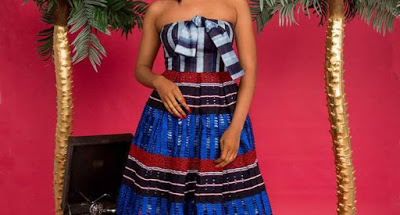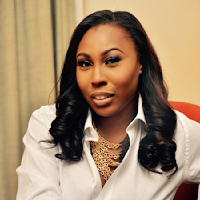
Ralph Lauren once said that “Fashion
is not necessarily about labels, it’s not about brands. It’s about something
else that comes from within you”. He was basically alluding to the fact
that fashion in its tangible form – is a statement. A statement of simplicity
or explicit extravagance. These statement have been in forms
of accessories, scents, or general combination of various fabrics to
make distinctive apparels as is common in Sub Saharan Africa. On a
personal front,fashion has been a medium for projecting a bit of my personality
and current mood.
is not necessarily about labels, it’s not about brands. It’s about something
else that comes from within you”. He was basically alluding to the fact
that fashion in its tangible form – is a statement. A statement of simplicity
or explicit extravagance. These statement have been in forms
of accessories, scents, or general combination of various fabrics to
make distinctive apparels as is common in Sub Saharan Africa. On a
personal front,fashion has been a medium for projecting a bit of my personality
and current mood.
Growing up, threads, needles and sewing
machines were common fixtures of my childhood- thanks to my mother’s love/
hobby, which eventually became her “main hustle”. Looking
retrospectively, being around the entire creative process led to my lifelong
fascination with everything fashionable.
machines were common fixtures of my childhood- thanks to my mother’s love/
hobby, which eventually became her “main hustle”. Looking
retrospectively, being around the entire creative process led to my lifelong
fascination with everything fashionable.
Recently, I was opportune to attend a
private viewing of a Nigerian Fashion Brand (MAZELLE) Summer Spring 2018
Collection- it’s definitely worthy of note that the fashion industry in
Nigeria, has evolved from the era of “Obioma” (road side tailor) to a
recognized industry. This evolution has definitely brought to light the need to
have a formidable regulatory body/ association to advance and advocate the
cause of the fashion Industry in Nigeria. A body, similar to The Arab Fashion
Council, British Fashion Council and The Council of Fashion designers in
America. These councils have and are continuously contributing to the longevity
of the fashion industry in their various economies.
private viewing of a Nigerian Fashion Brand (MAZELLE) Summer Spring 2018
Collection- it’s definitely worthy of note that the fashion industry in
Nigeria, has evolved from the era of “Obioma” (road side tailor) to a
recognized industry. This evolution has definitely brought to light the need to
have a formidable regulatory body/ association to advance and advocate the
cause of the fashion Industry in Nigeria. A body, similar to The Arab Fashion
Council, British Fashion Council and The Council of Fashion designers in
America. These councils have and are continuously contributing to the longevity
of the fashion industry in their various economies.
In light of aforementioned and given the
unique situation of the Nigerian Fashion Industry- The below list ( neither
conclusive nor an exhaustive list) will help emerging fashion entrepreneurs,
fashion enthusiast and established brands understand few legal
frameworks and issues associated with a fashion establishment.
unique situation of the Nigerian Fashion Industry- The below list ( neither
conclusive nor an exhaustive list) will help emerging fashion entrepreneurs,
fashion enthusiast and established brands understand few legal
frameworks and issues associated with a fashion establishment.
1. Setting
up a Fashion Enterprise – This involves the incorporation of the business,
structure and funding of the business. In developing personal names
as fashion brands, designer should be aware that there are a number
of risks that could arise- in the event the company is sold they
might lose the right to use their names in the industry. They might also
encounter hurdles in registering their personal name as a trademark.
Structure and funding of a business ( whether fashion or not) is an integral
part of any organization as it sets the foundation and the core of the
business.Case- Kylie Minogue Vs
Kylie Jenner– Kylie Jenner filed to register the name KYLIE as a
trademark in relation to advertising services and endorsement services but was
blocked by way of an opposition application brought by Veteran
Australian Pop Star Kylie Minogue citing possible confusion and damage to
Minogue’s Branding. According to papers filed in the US patent and
Trademark Office ( USPTO), Minogue’s legal team noted that their client a
renowned performing artist , humanitarian and breast cancer activist already
owned KYLIE related trademarks in the US in several
industries as well websiteswww.kylie.com. However Minogue’s
team withdrew its opposition so there is a possibility they agreed to a
settlement.
up a Fashion Enterprise – This involves the incorporation of the business,
structure and funding of the business. In developing personal names
as fashion brands, designer should be aware that there are a number
of risks that could arise- in the event the company is sold they
might lose the right to use their names in the industry. They might also
encounter hurdles in registering their personal name as a trademark.
Structure and funding of a business ( whether fashion or not) is an integral
part of any organization as it sets the foundation and the core of the
business.Case- Kylie Minogue Vs
Kylie Jenner– Kylie Jenner filed to register the name KYLIE as a
trademark in relation to advertising services and endorsement services but was
blocked by way of an opposition application brought by Veteran
Australian Pop Star Kylie Minogue citing possible confusion and damage to
Minogue’s Branding. According to papers filed in the US patent and
Trademark Office ( USPTO), Minogue’s legal team noted that their client a
renowned performing artist , humanitarian and breast cancer activist already
owned KYLIE related trademarks in the US in several
industries as well websiteswww.kylie.com. However Minogue’s
team withdrew its opposition so there is a possibility they agreed to a
settlement.
2. Intellectual
Property Issues- This boarders on Trade mark registration, Design
protection and copyrights involved in the business. We have seen this play out
with the different litigation cases that have occurred involving brands
like Christian Louboutin, Yves Saint Laurent (YSL), Gucci and Forever 21 e.tc.
Knowing the exact type of Intellectual Property that pertains to the
business and the laws involved is fundamental in the industry to protect
the brand and enforce rights attached to it. Case- Christian Louboutin Vs Yves Saint
Laurent(YSL) – Shoe Designer Christian Louboutin battled YSL in court
over ownership of his famous red soles. The litigation began when the French
house launched a collection of shoes in a range of colors , each with a
sole that matched its upper. The court held that Louboutin could not prevent
other brands from creating red shoes with red soles, but that no other brand
should create a shoe contrasting with a red sole as that was
likely to cause confusion for customers who would assume the shoe was by
Louboutin. Christian Louboutin who holds a valid US trademark is headed back to
court again to protect his trademark in the European Union; hence making sure
that European brands adhere to the guidelines.
Property Issues- This boarders on Trade mark registration, Design
protection and copyrights involved in the business. We have seen this play out
with the different litigation cases that have occurred involving brands
like Christian Louboutin, Yves Saint Laurent (YSL), Gucci and Forever 21 e.tc.
Knowing the exact type of Intellectual Property that pertains to the
business and the laws involved is fundamental in the industry to protect
the brand and enforce rights attached to it. Case- Christian Louboutin Vs Yves Saint
Laurent(YSL) – Shoe Designer Christian Louboutin battled YSL in court
over ownership of his famous red soles. The litigation began when the French
house launched a collection of shoes in a range of colors , each with a
sole that matched its upper. The court held that Louboutin could not prevent
other brands from creating red shoes with red soles, but that no other brand
should create a shoe contrasting with a red sole as that was
likely to cause confusion for customers who would assume the shoe was by
Louboutin. Christian Louboutin who holds a valid US trademark is headed back to
court again to protect his trademark in the European Union; hence making sure
that European brands adhere to the guidelines.
3. Retail- This
deals with the final product reaching the consumers either from a storefront
or via online platforms. Ensuring PCI (payment card industry) compliance
with every transaction is key when transacting online.There is also a duty to
secure the customer’s information.
deals with the final product reaching the consumers either from a storefront
or via online platforms. Ensuring PCI (payment card industry) compliance
with every transaction is key when transacting online.There is also a duty to
secure the customer’s information.
4.
Contractual Relations- Validity and enforcement of contracts such as Employment
( Labour matters) , Sponsorship and Sales agreements, Licensing , partnerships
and franchise e.tc
Contractual Relations- Validity and enforcement of contracts such as Employment
( Labour matters) , Sponsorship and Sales agreements, Licensing , partnerships
and franchise e.tc
5. International
Trade- This involves expanding the business. This will also
raise several issues and engage several regulatory bodies such as
the Standard Organization of Nigeria, The Nigerian Export and
Promotion Council and the Nigerian Custom for border control. These bodies
usually render advise and enforce Intellectual Property Rights of brand owners
against counterfeiters.
Trade- This involves expanding the business. This will also
raise several issues and engage several regulatory bodies such as
the Standard Organization of Nigeria, The Nigerian Export and
Promotion Council and the Nigerian Custom for border control. These bodies
usually render advise and enforce Intellectual Property Rights of brand owners
against counterfeiters.
6. Marketing-
This is one of the major factors in the fashion industry as it involves
introducing the brand to its consumers or the general public. This is
where social media platforms and fashion bloggers have created a niche for
themselves and have held the power to shape the public’s perception of the
brand. Brand owners have a right when the blogger’s narrative is not true or
slanderous of the brand. Bloggers should be aware of copyright laws on
infringement with a focus on content ownership and syndicated issues. The
blogger should also be armed with the( knowledge of) defence of Fair
Use in its application to posts especially in photography and where to get
photos.
This is one of the major factors in the fashion industry as it involves
introducing the brand to its consumers or the general public. This is
where social media platforms and fashion bloggers have created a niche for
themselves and have held the power to shape the public’s perception of the
brand. Brand owners have a right when the blogger’s narrative is not true or
slanderous of the brand. Bloggers should be aware of copyright laws on
infringement with a focus on content ownership and syndicated issues. The
blogger should also be armed with the( knowledge of) defence of Fair
Use in its application to posts especially in photography and where to get
photos.
Engaging the services of a lawyer is
absolutely important to navigate through the industry.
absolutely important to navigate through the industry.
Disclaimer: This article is only intended
to provide general information on subject matter and does not itself
create a client /attorney relationship between the reader and the author.
Specialist legal advise should be sought about the readers specific
case.
to provide general information on subject matter and does not itself
create a client /attorney relationship between the reader and the author.
Specialist legal advise should be sought about the readers specific
case.

Toju
Dottie
Dottie
Senior Associate & Consultant
George Ikoli & Okagbue
Source – Linkedin
